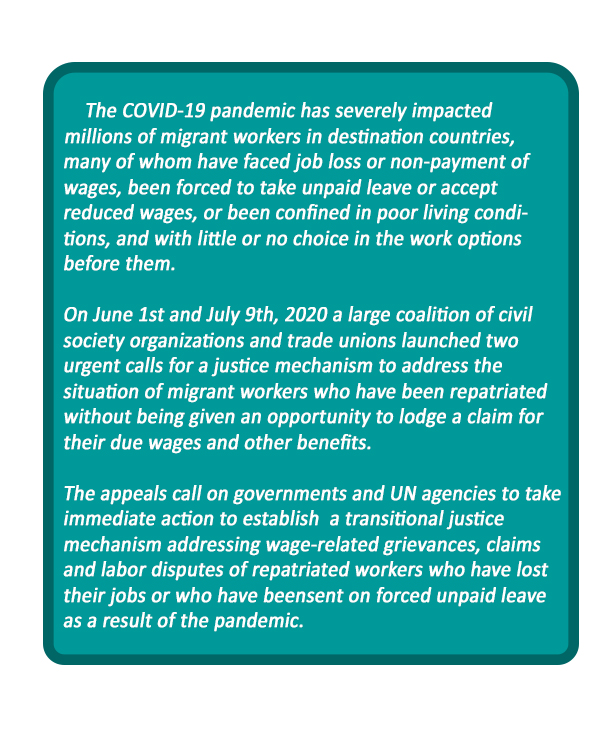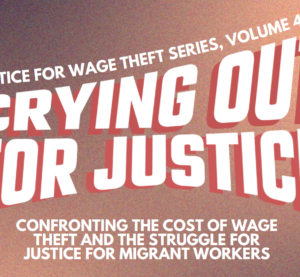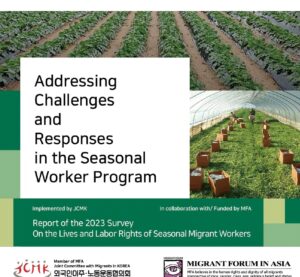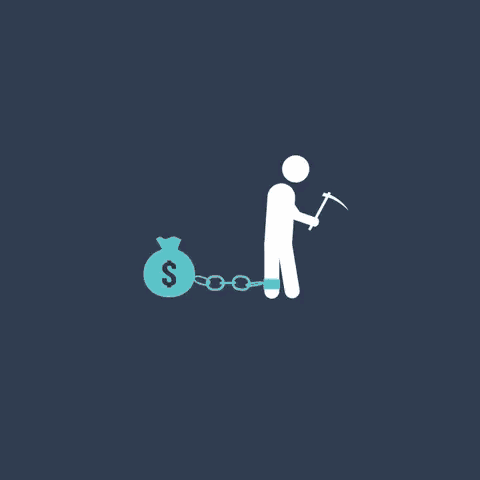Appeal 3 | COVID-19: A Time for Businesses to Act Responsibly in Ensuring Justice for Migrant Workers
— August 12, 2020The Role of Business in Preventing Labor and Human Rights Abuses
The UN Guiding Principles On Business and Human Rights, which were unanimously endorsed by the UN Human Rights Council 2011, make clear both the duty of states and the responsibilities of companies to respect human rights.Principle 13 notes the responsibility to respect human rights and requires that business enterprises to:
(a) Avoid causing or contributing to adverse human rights impacts through their own activities, and address such impacts when they occur;
(b) Seek to prevent or mitigate adverse human rights impacts that are directly linked to their operations, products or services by their business relationships, even if they have not contributed to those impacts.
The COVID-19 pandemic has undoubtedly deeply affected businesses, many of whom had to permanently or temporarily close down, reduce the scale of their operations, or significantly cut their workforce. With the pandemic continuing to unfold, it has become increasingly difficult for employers to predict what the final impact on their struggling businesses will be. Entire sectors such as tourism, entertainment and aviation sector are at risk of being entirely wiped out if the current situation continues.
While businesses face massive challenges of unprecedented scale, workers face even more challenges. The International Labour Organization has predicted that the equivalent of 195 million full-time jobs will be lost in the second quarter of 2020. Workers in the informal economy, day laborers, migrants, temporary workers, and those without social security coverage are amongst those who are most severely affected.
For migrant workers in particular, the pandemic has heightened pre-existing problems of wage theft. Some businesses have taken advantage of the current pandemic, to unlawfully dismiss and withhold the wages of the migrant workers that they employ. Many workers return home empty handed, having been coerced to forgo their due wages and benefits they were entitled to, while other continue to work under exploitative conditions and reduced wages for fear of losing their livelihood in the climate of a global economic recession.
While many businesses worldwide have started to receive some kind of government assistance or bailouts, those schemes have rarely if ever included migrant workers as beneficiaries.When such benefits are provided to the migrant workers through the employers, there is no mechanism to monitor and ensure that the migrant worker, who is the ultimate beneficiary, actually receive the benefits.
Now more than ever, businesses must fulfill their legal obligations to protect the fundamental labor and human rights of migrant workers, including paying them what they are entitled to. The choices we make right now will have a bearing on the future that we shape together. In times of crisis, acting to uphold migrant workers’ rights is a strong reflection of the core values of the businesses and our collective responsibility to shaping a better world post pandemic.
What Must Employers do to Protect Migrant Workers from Wage Theft?
1) Employers must ensure that all salaries are paid in full and without delays. Employers should not take advantage of a health crisis to justify short term actions in reducing workers’ job security and income.
2) Employers must not deduct wages for time away from work due to mandatory quarantines, lockdowns or to recover from COVID-19, which must be treated as an occupational illness.
3) Employers must not impose or coerce workers into new contracts that reduce wages and benefits or weaken worker protections.
4) Companies should ensure that there are no cash flow issues that will affect payment of wages to workers in the supply chain.
5) Companies should observe and comply with all applicable laws, regulations in accordance to international standards and with collective agreements with regards to wages and work conditions including safety in the work place.
6) Companies should take measures to ensure workers’ labour rights are respected regardless of their migratory status in countries where COVID-19 related economic, health, labor and other key policies have been introduced and are discriminatory.
7) Any contractual change must be temporary, and mutually agreed with workers. Contractual changes must be justified, and the company must settle all end of service benefits as per the old wage, before starting the new contract terms.
What Must Employers do to Protect Migrant Workers from Wage Theft?
8) Companies should encourage governments to include migrant workers in any and all social safety net schemes.
9) When contracts are terminated, companies should observe their obligations regarding notice periods, the payment of wages, compensation and end-of-service benefits.
10) Companies must continue to provide food and accommodation for laid off migrant workers in cases where immediate repatriations are not possible. Companies should also cover the costs of return flights should workers wish to leave.
11) Companies should take into account the consequences of lay-offs and other employment measures on the visa status of their migrant workers and facilitate the transfer of workers to other employers in cases where this is possible, without withholding entitlements or levying any penalties.
12) During the recovery period, companies should prioritize reinstating repatriated workers who lost their jobs due to the pandemic before carrying out any new recruitment.
13) Companies should cooperate with the national claims commission when investigating cases of wage theft and should open itself to investigation.
14) As an expression of solidarity and social responsibility, companies could make monetary contributions to a compensation fund. Money from the fund would be used to compensate migrant workers who are victims of wage theft.






